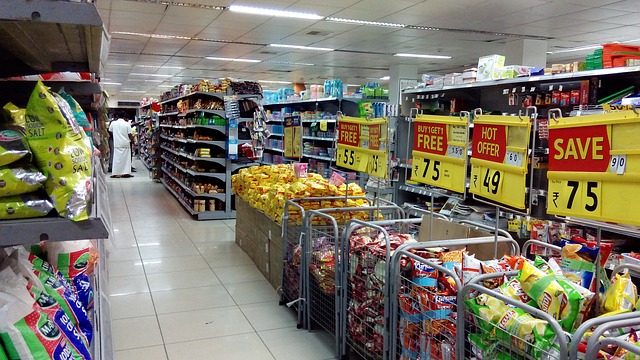Grofers Revives With Focus On Unit Economics And Private Labels

The Indian food and grocery market accounts for about 70% of the retail market, which is why every major player from Amazon to Ola is eyeing it. Online food grocer Grofers has recently raised $220 million in a Series F round led by Softbank Vision Fund. According to a Goldman Sachs report, the Indian online grocery market is expected to reach $40 million in FY2019 and is expected to grow at a CAGR of 62% from 2016 to 2022.
Grofers’ Journey
Gurgaon-based Grofers was founded in 2013 by IIT graduates Albinder Dhindsa and Saurabh Kumar. It is a low-price online supermarket that allows you to order home delivery of groceries, vegetables, beauty and wellness, household care, baby care, meat, and seafood products. It operates in 13 cities including Ahmedabad, Bengaluru, Chennai, Delhi, Gurugram, Hyderabad, Jaipur, Kanpur, Kolkata, Lucknow, Noida, Mumbai, and Pune.
Initially, Grofers offered delivery within two hours. However, this model proved to be unsustainable. Around 2016, Hyperlocal businesses became a tough space to be in. Grofers then focused on improving its unit economics and customer experience. In 2017, it started focusing on private labels and the middle-class customer that goes for planned purchases and low-priced products. It moved away from niche products and categories, which were a pain point when orders could not be fulfilled.
Instead of aggressive expansion, Grofers focused on its unit economics and profitability. One way to do this was by focusing on private labels such as Mother’s choice, Happy Home, Happy Day, and Gfresh. The private label stack consists of 780 products and accounts for about 40% of sales. Currently, about 86% of its users use its private label products. The company also plans to make its Budget and Popular G products available at local grocery stores in the next few months. It expects private labels to account for 50% sales in 2019 and 60% by 2021.
Grofers’ Financials
The focus on unit economics seems to be paying off. From January 2017 to January 2019, gross sales at Grofers increased by 11 times. It has broken even in Gurgaon and Noida and is approaching break-even in Delhi and Kolkata. The overall business is expected to become profitable by the end of 2021.
Revenue in FY 2018 was $136 million or INR 950 crore. Losses have narrowed slightly to INR 258 crore or $37 million. It has crossed INR 300 crore or $43 million in monthly sales and expects to end FY 2019 with revenue of INR 2,500 crore or $358 million. Grofers claims to have about 60,000 daily orders, with an average order value of INR 1,450 or $21.
To compare, rival BigBasket leads the online grocery sector with about 80,000 daily orders. Its subscription service BB Daily has about 30,000 daily orders, but the size of these orders is much smaller. BigBasket has recently expanded to the micro-delivery space with the help of acquisitions. In April this year, BigBasket raised $150 million at a valuation of $1.2 billion, taking its total funding to $989.5 million. Its revenue in FY19 was INR 3200 crore or $460 million.
Grofers has so far raised $441.8 million from investors including SoftBank Vision Fund, Tiger Global Management, Roeding Ventures, Sequoia Capital, Yuri Milner, and KTB Ventures. In the latest round, Grofers raised $220 million from SoftBank Vision Fund and other investors. In an earlier round this year, it raised $60 million at an estimated valuation of $425 million.
In 2015, Grofers had raised $120 million at a valuation of $400 million. However, as the company rolled back its hyperlocal services and changed its business model, its valuation also dropped. The fresh infusion of funds is a reiteration that its business model is working.
The company will use the funds to expand its supply chain operations and increase its private label stack to 1,200 products by the end of 2020. The company is also gearing up to list within the next three years.




It's amazing that they've managed to capture 70% of the market so quickly. Yet it doesn't seem as if anything they've done couldn't have been easily replicated by others in this space or other new entrants.